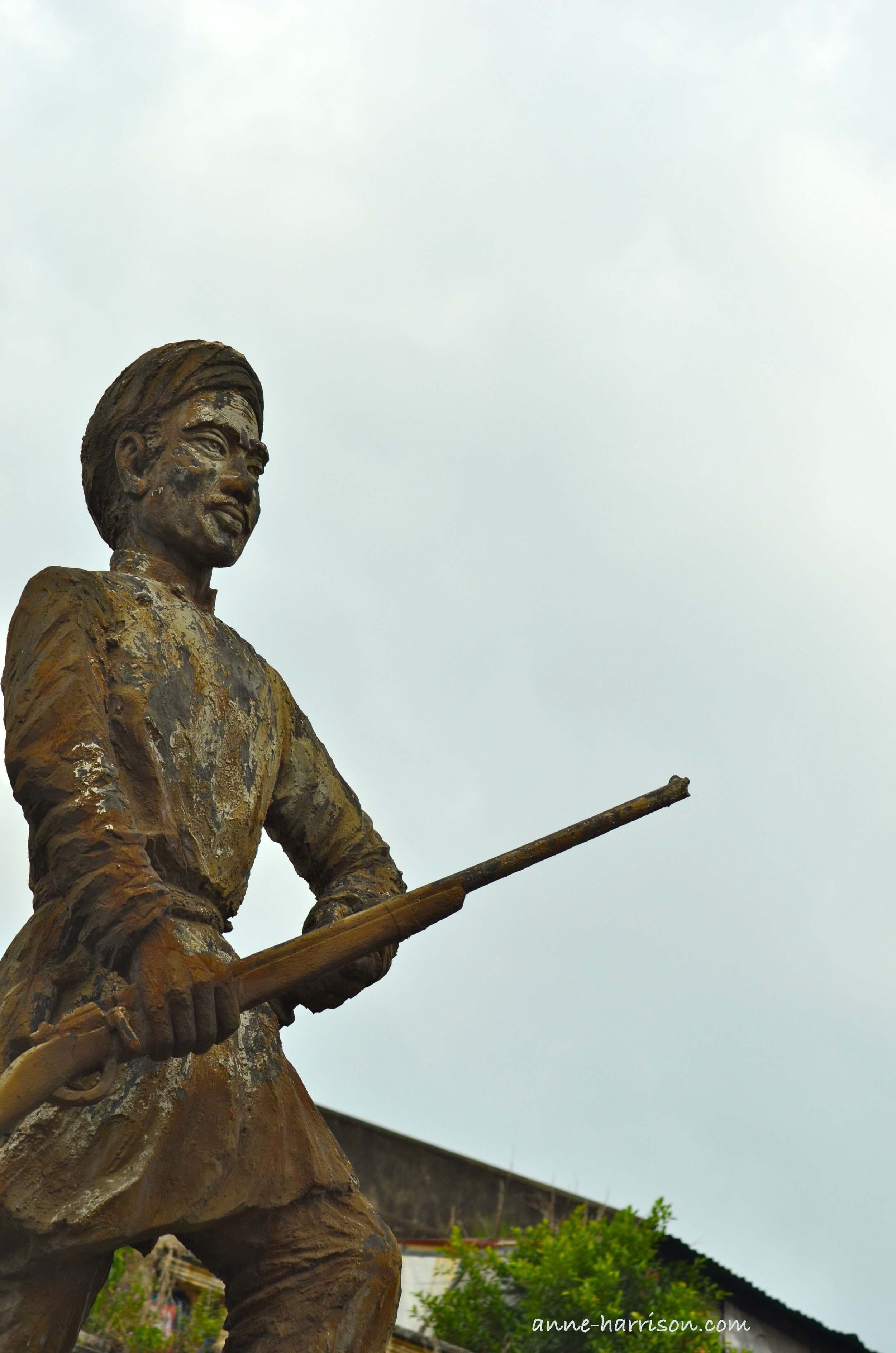The Quiet American
The countryside near Saigon © A. Harrison
Under the skilful hand of Graeme Greene, the tone of The Quiet American changes with each reading. Throughout the novel, the soft voice of Fowler contrasts with the violence of the world around him.
After dinner I sat and waited for Pyle in my room over the Catinat
So opens The Quiet American. Not until the novel’s ending do we realise Fowler already knows Pyle to be dead, although he pretends to himself Pyle may have escaped the doom Fowler himself helped arrange, if only by proxy. What exactly drives Fowler to this — for he knows the fate which awaits Pyle should Fowler simply stand by a window, reading — is a question running through the novel. Although he pretends otherwise, Fowler himself does not really understand his motives. Despair in the false foundations of Pyle’s good intentions; the hypocrisy which sees innocents die to impress the politicians back home; jealously; fear of being alone; justice — all these play a role, yet even Fowler never knows the predominant emotion. What angers him most is Pyle’s blindness to the hypocrisy and faults of his beliefs, yet anger is an emotion the repressed Fowler can never express.
Throughout the novel runs Greene’s love of Vietnam, and of Saigon. You can walk the streets of that vibrant city and see the places he mentioned, the streets he walked, the hotels where he dined. Even in the midst of war he paints the beauty of the laneways, of the rice fields stretching to the horizon, or the mountains and her rivers. He expresses a love of the Vietnamese people and their gentle ways, although it is at such odds with the violence slowly descending from the north as the French War of Indochine fails and the Vietnam War looms.
Yet it is Pyle’s own just beliefs, which Fowler sees as fundamentally wrong, which so anger him. Like his anger, Fowler is unable to express the nature of his feelings for Phuong, whose name “means Phoenix, but nothing nowadays is fabulous and nothing rises from its ashes”.
Besides the physical relationship between the two, intimacy is never an option for Fowler.
The novel’s themes, however are constant. Overall, it is a question of futility — can one’s actions really change anything, let alone prevent a war. Pyle’s actions may hasten it, Fowler’s cannot prevent it. Yet, knowing this, Fowler can still baulk at the impersonal methods used by Pyle, and at his disregard for life as he seeks the best image to impress the people back home.
The Quiet American is typical Greene — understated, never defined. It is also a love song to Saigon, and the people who still live there. It reflects on a war that is finishing and one that is about to start, on the lives of the journalists who cover it, drinking champagne on the rooftop bar of The Majestic Hotel (which still stands) as bombs fall in the north. Just below the surface, but never forgotten, is the destruction to the lives of those cursed to live through such times; those people with no voice, such as the girls Greene immortalises, walking along the Rue Catinat in their white silk trousers.
Enjoy my writing? Please subscribe here to follow my blog. Or perhaps you’d like to buy me a coffee? (Or a pony?)
If you like my photos please click either here or on the link in my header to buy (or simply browse) my photos. Or else, please click here to buy either my poetry or novel ebooks. I even have a YouTube channel. Thank you!
Plus, this post may contain affiliate links, from which I (potentially) earn a small commission.






Wandering Hoi An is the best way to explore and discover this ancient city. The buildings reflect her years as a thriving port; now Hoi An is filled with art galleries, gastronomic gems, ceramics, lanterns, and, of course, the silk for which the town is famed.